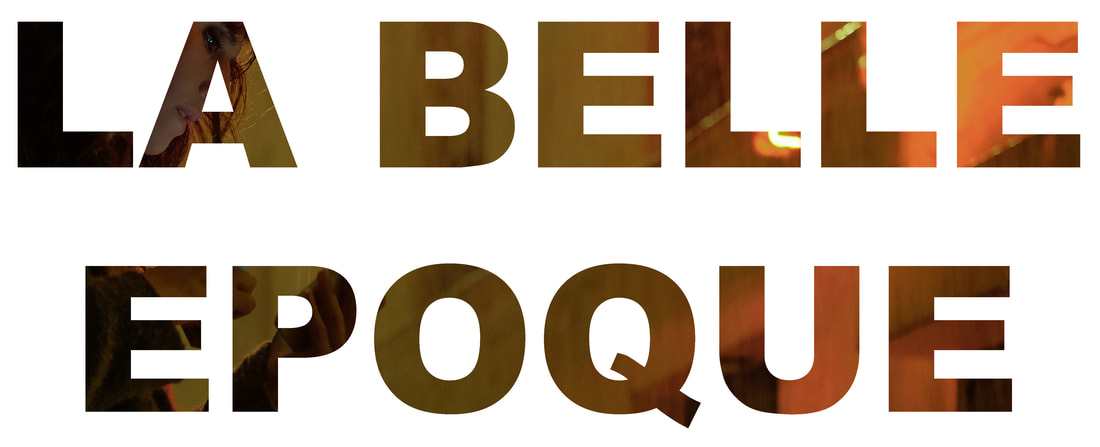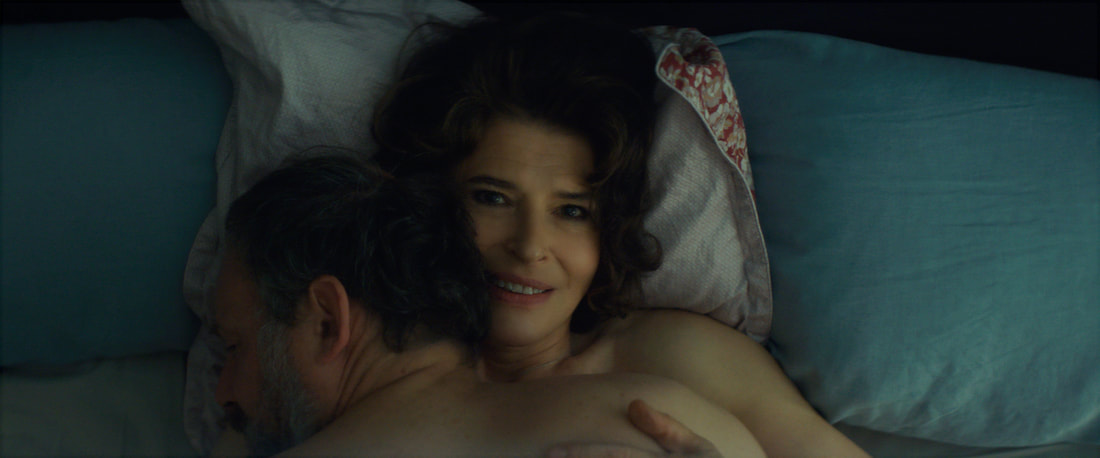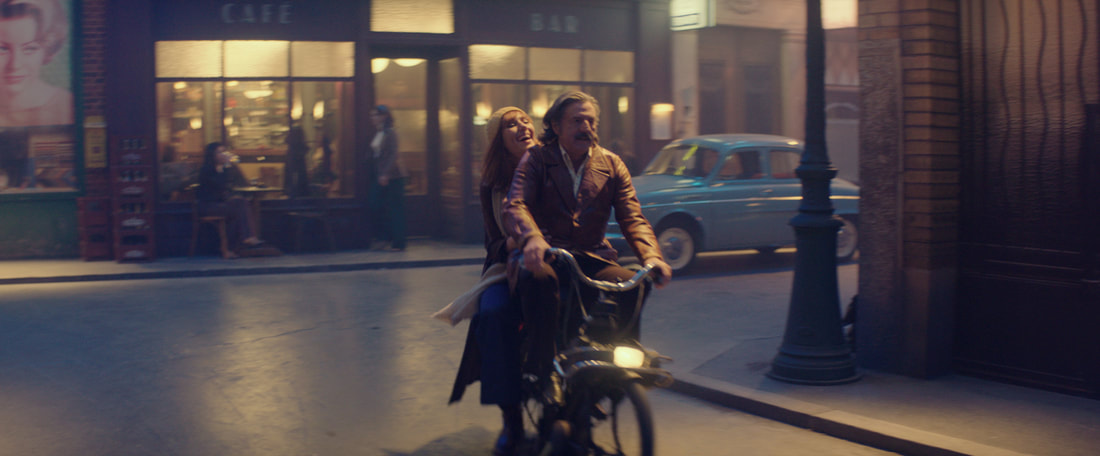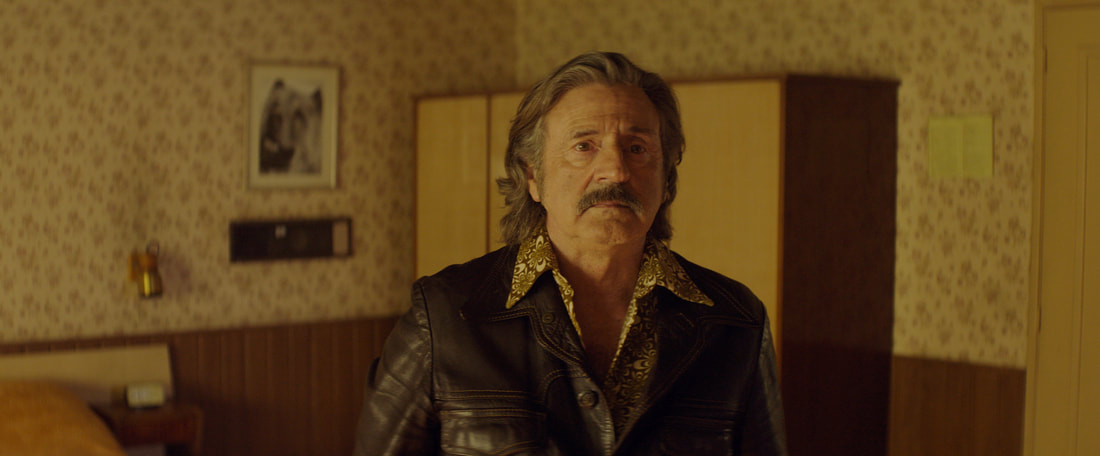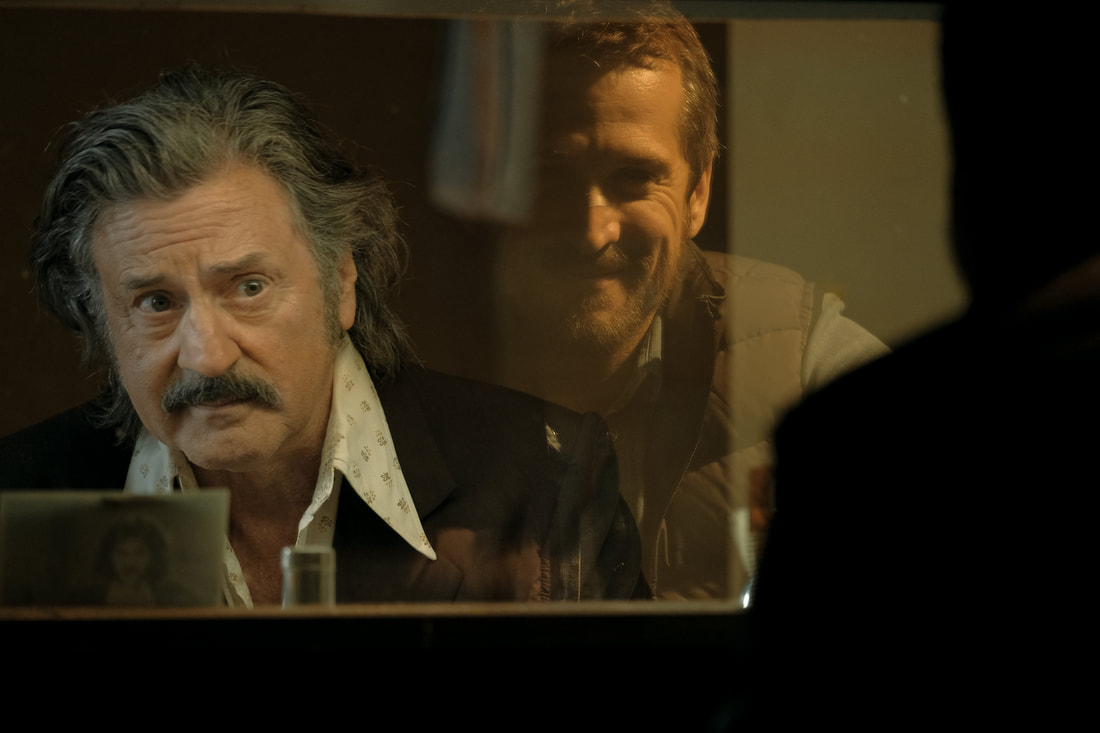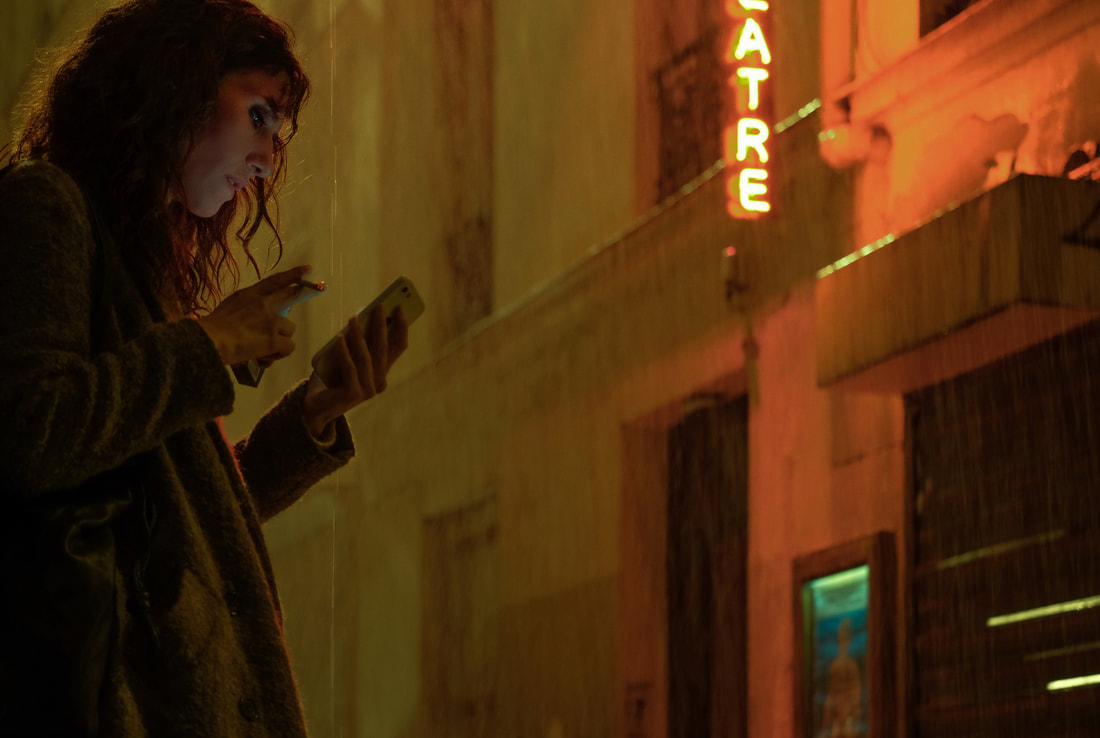|
★★★☆☆
15 November 2019
A movie review of LA BELLE ÉPOQUE. |
Director: Nicolas Bedos.
Starring: Daniel Auteuil, Guillaume Canet, Doria Tillier, Michaël Cohen, Denis Podalydès, Fanny Ardant.
“My life is totally empty,” Victor (Daniel Auteuil)
LA BELLE ÉPOQUE starts bold, so bold I wondered if this was going to be a French WESTWORLD. Alas, it merely becomes a conventional rom-com. The movie squandered its potential. That perhaps feels worse than the bog-standard genre offering, selling unobtainable ideals of love.
Starring: Daniel Auteuil, Guillaume Canet, Doria Tillier, Michaël Cohen, Denis Podalydès, Fanny Ardant.
“My life is totally empty,” Victor (Daniel Auteuil)
LA BELLE ÉPOQUE starts bold, so bold I wondered if this was going to be a French WESTWORLD. Alas, it merely becomes a conventional rom-com. The movie squandered its potential. That perhaps feels worse than the bog-standard genre offering, selling unobtainable ideals of love.
An energy vampire, Victor drains those around him. He is labelled chronologically out of date. He looks at the world in frustration, which is mutual. Now in his 60s, Victor was a newspaper cartoonist whose profession is all but extinct. Stubborn, he has chosen to be left behind. Victor’s wife, Marianne (Fanny Ardant), drives a Tesla. She makes no bones about being sick of him, “You have lived too long.” Brutal. Is Victor jealous of successful son, Maxime (Michaël Cohen)? The latter is involved in online streaming drama productions. Thankfully LA BELLE ÉPOQUE avoids dwelling on inter-generational strife. Victor does pertinently ask where all the hippies went. The theme of artifice and phoniness is at least talked about.
The title is not to be confused with BELLE EPOQUE [1992] starring Penelope Cruz and set in 1930s Spain. La belle époque means the good times. In history, I believe the term refers to the 1870s to 1914 France. Here, it is used personally for Victor. His ideal is May 1974, Lyon, when he first met his wife. A company, headed by Antoine (Guillaume Canet), Time Travellers, recreates and tailors the past for clients. At a cost. 35,000 Euros for a couple of days. LA BELLE ÉPOQUE talks about money not infrequently. Acknowledging how it preoccupies minds.
His son gives Victor a Time Travellers gift. Coincidentally, Maxime and Antoine were childhood friends. Also, Antoine feels Victor saved his life as a kid, because the lead gave him a book. Is that exaggerated or was Antoine at a real low point?
So Victor is transported. He more than me. In a warehouse with the latest tech, the sets are still poor. For Victor (false) nostalgia becomes addictive. Everyone wants things their way, living your best time. LA BELLE ÉPOQUE is not magical like MIDNIGHT IN PARIS [2011]. It is akin to immersive theatre or a theme park.
There are two romance plots. They primarily concern male egos and stubbornness. LA BELLE ÉPOQUE taps into the formula that women are better at relationships then men. Marianne isn’t at least. She doesn’t know herself. (The same applies to Victor.) She starts an affair with Victor’s ex-best friend, François (Denis Podalydès), who let him go from his newspaper job. At a dinner party Marianne burns bridges, calling her companions dull. Fair or unnecessary? Meanwhile, Margot (Doria Tillier) is Antoine’s on-off girlfriend. She is the beautiful dream, who we barely get to know. Just a two-dimensional male fantasy. This kind of paucity of female characterisation happens too often.
Antoine the cliché is a rude, bullying, dictatorial director, caring only about perfection of his art. (Applicable in any field.) He has a permanent limp, caused by arrogance and impatience. Is the limp designed to make audiences feel more sympathy towards him?
There are some rom-com staples:
- Funny repartee.
- Pervy colleague.
- The lesson of appreciating what you have.
At least LA BELLE ÉPOQUE kind of wins you over at the time, but one struggled to remember why exactly.

